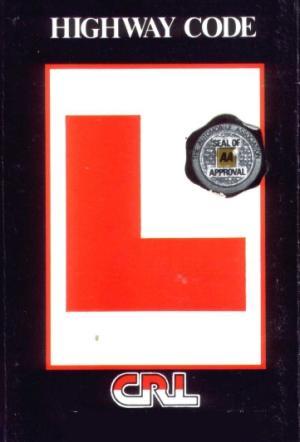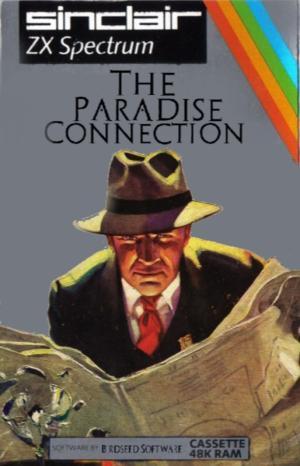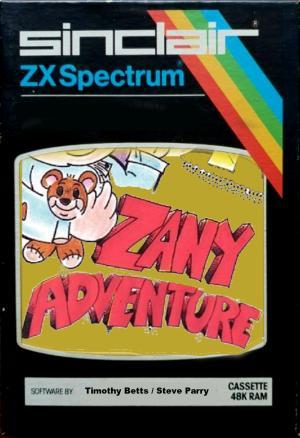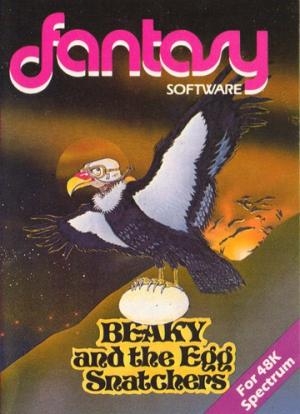
| Console: | Sinclair ZX Spectrum |
| TV Standard: | Region Not Set |
| Publisher(s): | Fantasy Software |
| Release Date: | 1984-09-03 |
| Players: | 1 |
| Co-op: | No |
| ESRB: | Not Rated |
| Type: | Shooter |
BEAKY AND THE EGGSNATCHERS
PHASE 1: EGG COLLECTING
You enter the game in a situation where the evil Eggsnatchers have Stolen your eggs from the nest while you've been away for a minute or so with your mate! The object of this phase is to collcet the eggs and take them back to the nest whilst losing as little of your reserves of magic as possible. Unfortunately Andromedan Condor eggs are rather heavy and it is not possible for poor Beaky to lift an egg from its position on the platform. In order to recover his eggs then, he has to actually allow the Eggsnatchers to remove them, shoot an Eggsnatcher before it dematerialises with the egg causing it to drop the egg, and then pick up the egg himself before it smashes (pheew!) which is in fact a lot easier to do than try to describe. When you are carrying an egg Beaky is shown yellow and cannot pick up another egg. Any collision with an Eggsnatcher will result in loss of magic. After the first life-cycle you will find matters made worse by the appearance of green mutant eggs which will destroy one of the eggs you have collected if it reaches the nest. The mutant eggs are best shot out of the air although they can be destroyed by collision but this will result in a large loss of magic to counteract contamination so this method should only be a last resort. During this first phase you must make a strategic decision as to when to exit. If you deter exiting for too long you may not leave yourself enough magic to sustain you through the next 2 phases. There is a need for haste in this first phase for magic is lost gradually as time passes. You will discover by experience your best strategy. If you are using a joystick you terminate this phase by simply holding the fire button down for just over a second. On the keyboard you press 'E' or whatever key you have selected for 'Quit'.
PHASE 2: EGG BROODING
Having collected some eggs your task is to brood them which necessitates keeping them warm. Unfortunately the eggsnatchers and their adversaries are determined to make this as difficult for you as possible. They drop snowflakes on to your nest to cool the eggs down. The snowflakes can be shot which melts them, turning them into water droplets which, when blue, can be shot again, vapourised and rendered harmless. Every time a snowflake or water droplet hits the nest the temperature, shown bottom right will drop. When the temperature drops to zero an egg will be lost. To make matters worse you face another problem in a creature known as a Froogle, a very distant relation of our terrestrial frog and also related to the infamous Googly Bird. Froogles have enormous reserves of dark magic which they can call upon for short durations of time although they spend most of their lives asleep and have to take a nap after any burst of activity such as hopping. Any contact with a Froogle when he is asleep will cause him to panic and shrink out of spacetime while emitting a large burst of dark magic which will neutralise an equally large amount of your own magic. Contact with him when he is awake will cause a continuous drain of your magic while having no effect whatsoever an the Froogle so this should always be avoided. Froogles maintain a continuous bombardment on your nest by hopping along (wich frequent naps along the way) and deftly flicking liquid nitrogen bombs in amongst the eggs thus causing a large drop in temperature. There is only one very devious means of stopping the Froogles from doing this and that is by shooting down the multi-coloured spinning sphere that moves around the screen (no-one knows what these strange objects are but what the matter, it'S a good thing they're there!), and causing the central nucleus to fall an the Froogle's head when he is asleep with somewhat amusing result. If he is awake he can defend himself with his magic and the nucleus will have no effect - timing is therefore important. Contact with the strange spinning sphere will cause it to dematerialise and result in a slight loss of magic. The eggs have the remarkably short incubation time of 2 minutes which can be seen ticking away at the bottom of the screen. If you have successfully brooded an egg through this time you will continue to Phase 3.
PHASE 3: CHICK REARING
Your eggs (or egg!) have hatched and the resulting little (or not so little) Beaky chicks are hungry. In fact they are ravenously hungry for Andromedan Condor chicks are well known for their voracious appetites. Their diet consists solely of a strange species of flying worm found only on the planet of Crackit. These have to be caught in flight and taken back to the next to feed the chicks. Unfortunately these flying worms are rather slippery customers and do their utmost to avoid a premature end in the mouth of a ravenous Beaky chick. They are easily frightened and will take avoiding action when pursued. Fortunately, you can fly faster than the worms although at times it doesn't seem to make that much difference! To capture a worm you must be DIRECTLY over it as you will discover in play. Beaky is shown green or cyan when carrying a worm. You will probably find it relatively easy to feed the chicks in die first life-cycle but rest assured that it will get more difficult later. More Eggsnatchers also materialise in this phase. They are out to deplete your food supply by dropping missiles into the nest. Eggsnatchers also eat flying worms (they have a hard time on Crackit) and will devour them on contact. Your current level of food reserves is shown bottom right and becomes depleted rather rapidly (especially if you have a lot of chicks). If you fail to keep the chicks fed quickly enough and the food reserves drop to zero then I'm afraid die weakest chick will be singled out and devoured by the others (they're not really nasty - it's just Nature, the survival of the fittest). Because of their vast food intake it takes only 4 minutes for the chicks to mature and fly from the nest. If you succeed in rearing a chick through the third phase you proceed to the first phase of the next life-cycle.
If you succeed in rearing a chick through the fourth life-cycle you will have completed the game and a code will appear. If this is sent to us together with your score then your name will be entered in our "Hall of Fame" published in our newsletter.
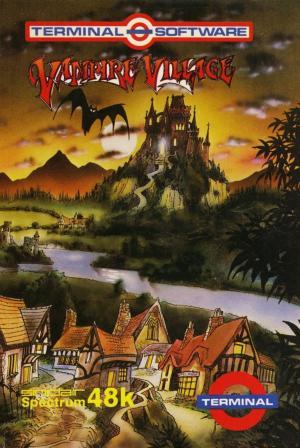
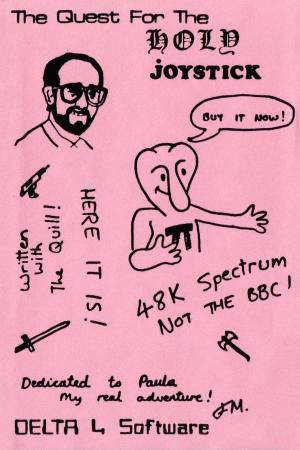
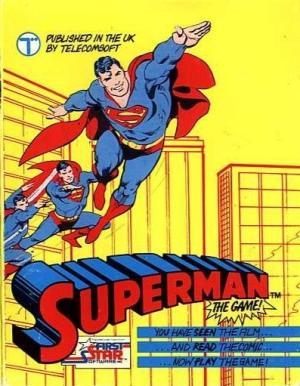

![Planetoids [ROM Cartridge]](https://gm.egamedb.com/planetoids-rom-cartridge-sinclair-zx-spectrum-fct.jpg)


